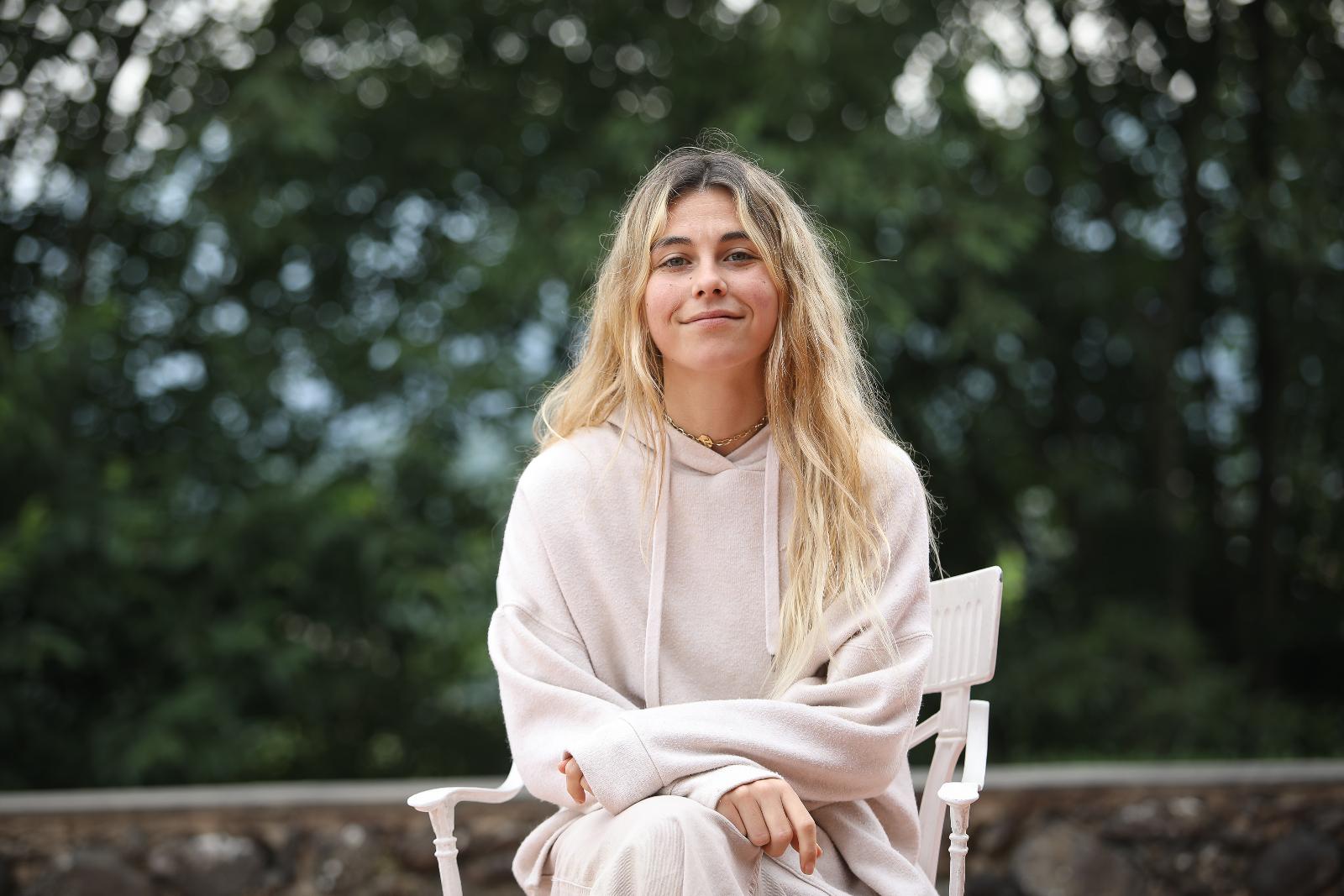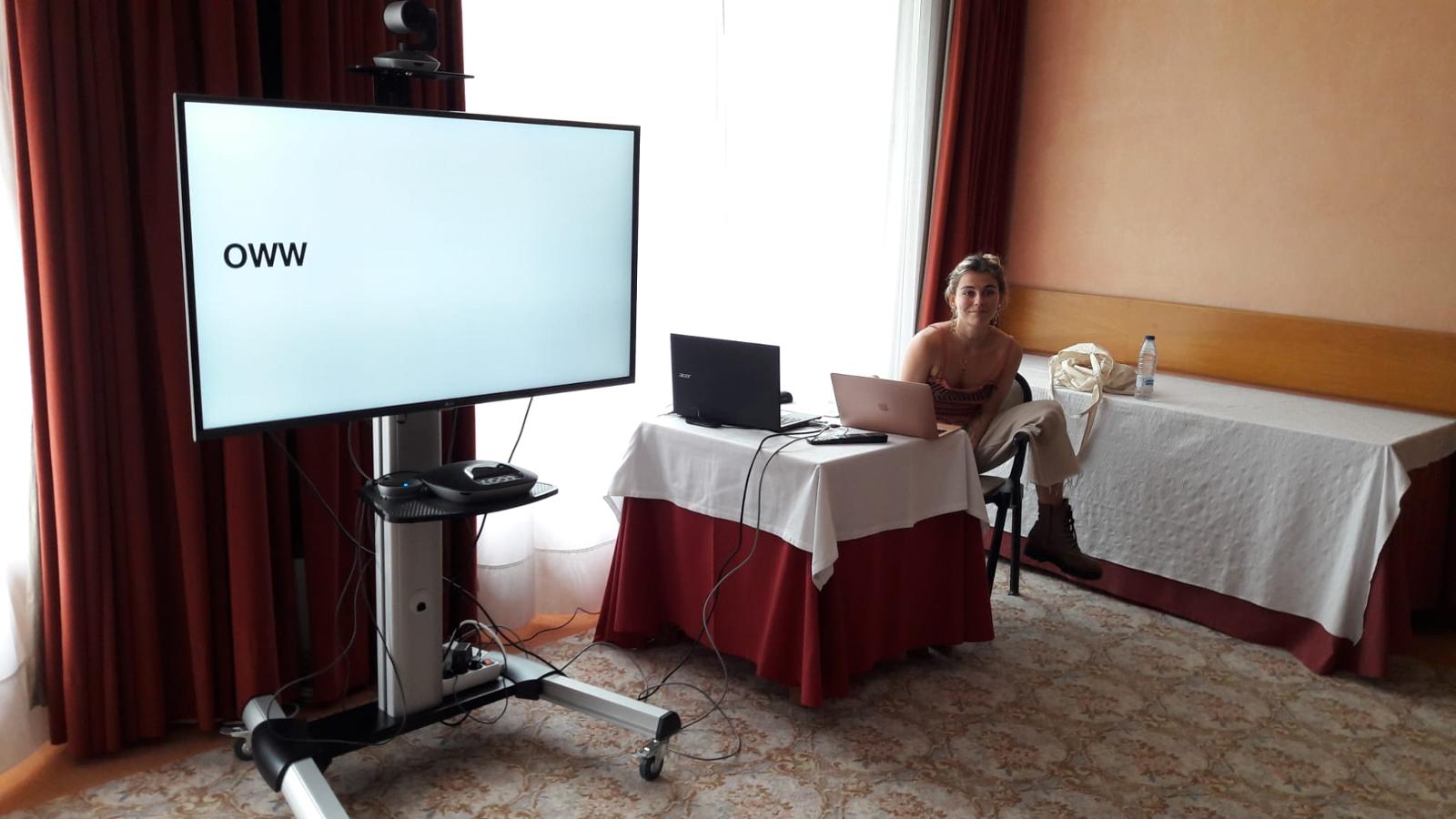Collective residencies / Let's consider borderlands / Olot
CRISTINA MORALES FERNANDEZ
From Tuesday, 7 June 2022 to Tuesday, 14 June 2022

Bio
Cristina is a PhD student in Comparative Literature. Her work centers on the circulation of cultural products on a global scale, and more precisely, on how meaning is created when literature is compared beyond geographical and temporary boundaries. Her hypothesis is that fiction, –which is not, and is known not to be true–, can provide access to different dimensions of the world we inhabit. Cristina's project proposes a method for comparing texts that relates literature to the world, defining a particular type of close reading in order to do so. It is a type of reading that is capable of de-contextualizing the texts in order to establish short yet meaningful relationships to other works of literature. She proposes a close reading that considers plot twists, allegories, metaphors and dislocations as literature’s mechanism of creating significances. Furthermore, she argues, through the analysis and comparison of such forms of displaced significances, we are able to trace a mesh of "distracted theories" about the world and the ways in which we exist on it. Theories that, although unfocused, induce new and fresh manners of approaching reality. Cristina's project displaces the geographical unevenness of the world literary field in order to shed light to the non-geopolitical relationships that can be traced in literary works. It studies the ways in which literatures relate to each other through metaphorical alliances, and how those relationships carve and alter the worlds we live in at their joints.
Project
I will mostly be working on my thesis, more precisely on its first and second chapter, which revolve around the comparatist tradition and the concept of literary value. Comparative Literature is a relatively young discipline, with a wide range of themes and objects of study throughout a field as large as the world itself. The first chapter of my thesis revises the ACLA (american comparative literature association) Reports on the state of the discipline, published in 1965, 1975, 1993 and 2014 in order to review the hegemonic perspectives and methodologies of the discipline throughout time. The second chapter analyzes the widely used term of "literary value" and the different meanings it adopts depending on the author and the context it is used in. The faber residency offers me great oportunity to dive into the writing process, as well as to share my study with fellow researchers.
Faber Residency Olot: Rethinking the border-space
This was my first time at a research residency. Although my expectations were high, the Faber experience has exceeded every possible anticipation. Once you are able to disconnect from your every day life, you realize how little time you really have to actually conduct a profound research such as a PhD. Used to only being able to spend a few hours a day working on my investigation, the possibility of focusing for seven straight days on my work –with nothing but wonderful views to distract me– is something that I am very grateful for. Also, the fact that this was a collective residency offered me the possibility to share my interests with great scholars and artists, allowing me to introduce new references and ideas and to expand my knowledge in many topics such as geography or the visual arts. This residency has been packed with contrasting perspectives on our respective disciplines, laughs and jokes about the state of the world, wonderful conversations and many hours of deeply focused work. I believe the existence of the Faber Llull is a gift for any kind of researcher or artist: it is not usual to have such a wonderful chance to work and share in such a great atmosphere, surrounded by nature and beautiful people. Both Pepa and Gavina were incredibly helpful and amazing hosts, always at our disposal and organizing activities and group sessions for us to get to know each other a little better. I would like to end by saying a huge thank you to the organization, to Alex Matas who so kindly proposed me for the residency, to my fellow companions who were the ones that truly made this experience unforgettable, and to the Faber staff for offering students, professors and artists from over the world the opportunity to get together and create, think, and get back to the community together.

